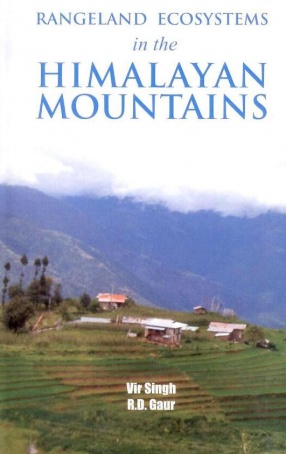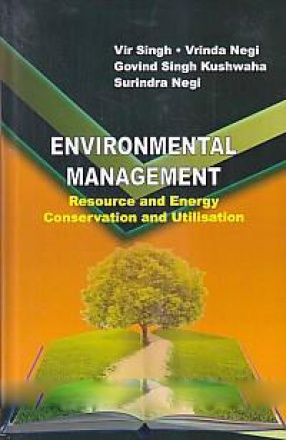Rangelands occcur almost everywhere on land’ surface of the Earth. In total, they cover about a quarter of the Earth’surface. According to some estimates, 70 per cent of the world’s total and area serves as rangelands. In the Himalayan areas, they occupy quite an appreciable proportion of the geographical area, ranging from some 60 to more than 80 per cent. Despite this dominance of the range ecosystems on Earth, they remain relatively less understood and grossly neglected in the policy framework and development interventions. Negligence of the largest chunk of Earh’s terrestrial ecosystems cost the whole planet.Dismal state of rangelands in the fragile and poverty ridden Himalaya is of grave concern. The present book is an attempt to bring to the fore the many facets of the Himalayan rangelands and to resolve the critical issues relating to their mangament. Rangelands, Croplands and livestock in the Himalayan mountains are integrated with considerable nutrient flows within a single functionl unit, the agro-ecosystem.Amongst these, rangelands serve as a storehouse of nutrients.The Himalayan rangelands are a rich natural repository of nature’s biodiversity.Their ecological role is critical to the very ecological integrity of the agro-ecosystems in the fragile mountains.’’Ecological and ‘’economic’’issues are inseparable.The economy emanates from the ecosystems.The largest ecosystems- the rangelands-are the most crucial once from the ecological integrity and,hence, from the economic point of view. Livelihoods of the masses in the Himalayan mountains are rooted in their rangeland ecosystems.Mountains communities,in essence,are the livestock-dependent communties and rangelands harbour a number of species of varying fodder values.The book presents taxonomis,ecological ethnobotanical and economic account of a variety of a variety of plants prospering in the mountain rangeland ecosystems A variety of wild fauna present in the range ecosystems has also been presented. Chemical composition of prominent foddet species has been presented Farmers’ traditional strategies of rangeland mangement have also been discussed in detail. The book also elabrotaes on the various natural and anthroopogenic factors and the constraints in range mangement. The Presents, book will prove to be a useful tool for the students, teachers, researcher, social scientists,natural resource mangement experts, economists, and policy makers particularly interested in the Himalayan mountains and for all those committed to the cause of the Earth.
Soil Ecology the Basis of Sustainable Agriculture and Climate Change Mitigation
Soils of the world hold a ...
$54.00
$60.00







There are no reviews yet.